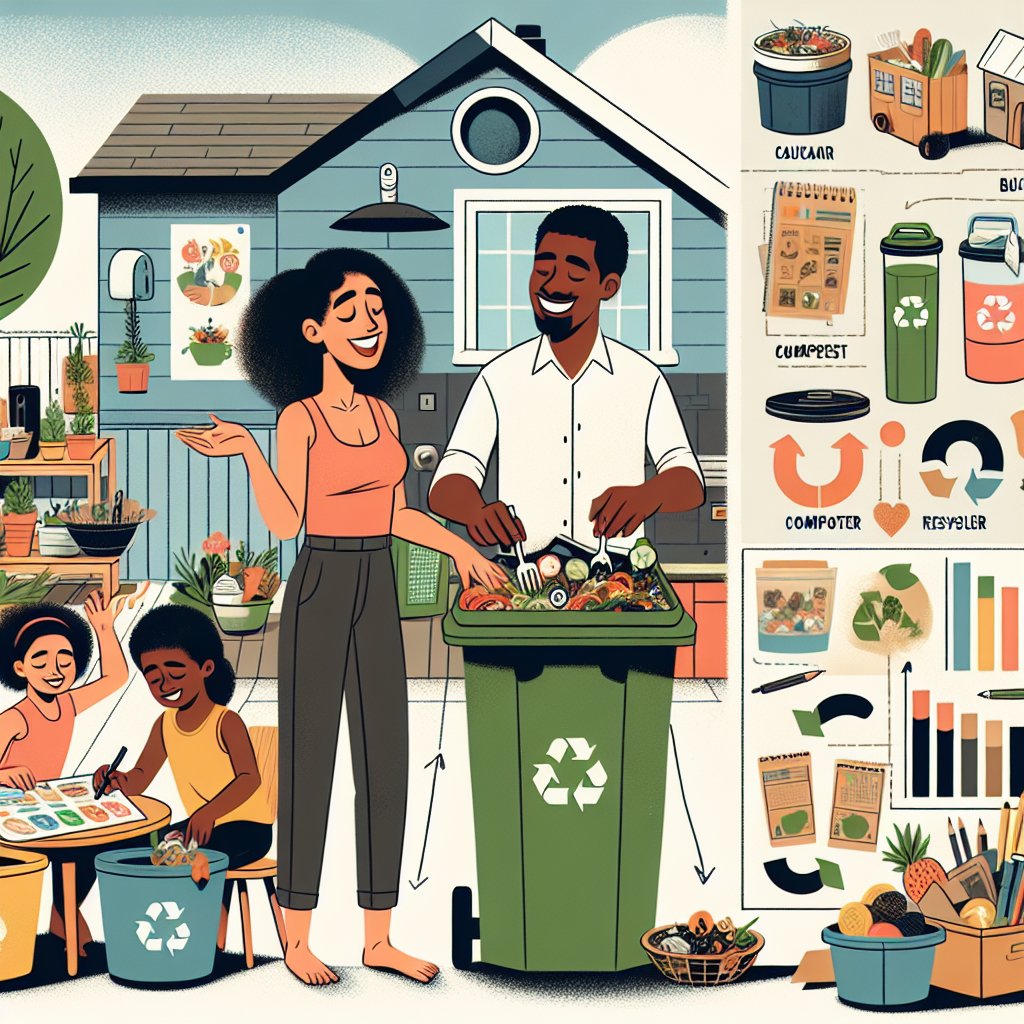In an age where environmental issues dominate global headlines, individuals and households are increasingly adopting sustainable practices that prioritize a minimal waste lifestyle. The concept of “zero waste” transcends beyond mere recycling; it embodies a comprehensive strategy aimed at reducing waste production to the bare minimum, all while maximizing the positive impact on the environment. This article explores the principles of zero waste living, practical strategies for households, and the profound impact they can have on the planet.
Understanding Zero Waste
The zero waste philosophy encourages individuals to rethink how they consume and dispose of materials. The ultimate goal is to divert waste from landfills and incinerators entirely, working towards a circular economy where resources are reused, repurposed, and recycled. The framework primarily revolves around the “5 R’s”: Refuse, Reduce, Reuse, Recycle, and Rot.
-
- Refuse – Say no to things you don’t need, like plastic bags, promotional items, and other disposable goods.
- Refuse – Say no to things you don’t need, like plastic bags, promotional items, and other disposable goods.
-
- Reduce – Cut down on what you consume. The less you buy, the less waste you will produce.
- Reduce – Cut down on what you consume. The less you buy, the less waste you will produce.
-
- Reuse – Opt for second-hand items and repurpose materials to extend their life cycle.
- Reuse – Opt for second-hand items and repurpose materials to extend their life cycle.
-
- Recycle – Properly sort and recycle materials according to your local guidelines, ensuring they are processed effectively.
- Recycle – Properly sort and recycle materials according to your local guidelines, ensuring they are processed effectively.
-
- Rot – Compost organic waste to enrich the soil and reduce landfill contributions.
- Rot – Compost organic waste to enrich the soil and reduce landfill contributions.
Practical Strategies for Households
1. Mindful Consumption
Households are starting to become more conscious about their purchasing habits. By opting for products with minimal or no packaging, families can significantly cut their waste output. Bulk purchasing, selecting items from local farmers’ markets, and choosing glass over plastic whenever possible are practical steps that yield substantial results.
2. DIY Household Products
Creating homemade cleaning supplies, personal care products, and even food can reduce dependence on packaged goods. Simple recipes using natural ingredients like vinegar, baking soda, and essential oils allow families to avoid chemical-laden products and excessive packaging.
3. Composting
Composting is one of the most effective ways for households to divert waste from landfills. By turning kitchen scraps and yard waste into nutrient-rich compost, families not only reduce waste but also create a valuable resource for gardening and landscaping.
4. Minimalism
Embracing a minimalist lifestyle can complement zero waste efforts. By decluttering living spaces and focusing on quality over quantity, families can reduce their consumption significantly. This approach also fosters a sense of gratitude for what one already possesses.
5. Community Engagement
Households that embrace zero waste often find strength in community. By collaborating with local organizations, participating in swap meets, and attending workshops, families can share resources, knowledge, and support one another in their sustainability journeys.
The Impact of Households Going Zero Waste
When families adopt zero waste practices, they contribute to significant cumulative environmental benefits. Reduced landfill waste leads to lower greenhouse gas emissions and less pollution. Moreover, it lessens the demand for single-use products, thereby decreasing the strain on natural resources and manufacturing processes.
Households embracing zero waste can also inspire others, creating a ripple effect in their communities. Social media platforms are replete with success stories that highlight the tangible changes individuals make, thereby encouraging others to follow suit.
Conclusion
The movement toward zero waste living is more than just a trend; it is a necessary evolution in how we interact with our environment. Households adopting these practices not only significantly reduce their environmental footprint but also inspire wider societal changes toward sustainability. By collectively refusing, reducing, reusing, recycling, and composting, families can create a cleaner, healthier, and more sustainable planet for future generations.
As we stand at the crossroads of environmental urgency and the power of individual action, it’s clear that every small change counts. The journey to a zero waste lifestyle may seem daunting, but with determination and community support, we can all make a maximum impact with minimal waste.




